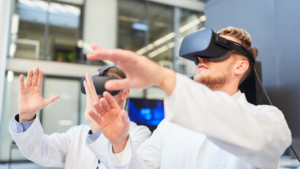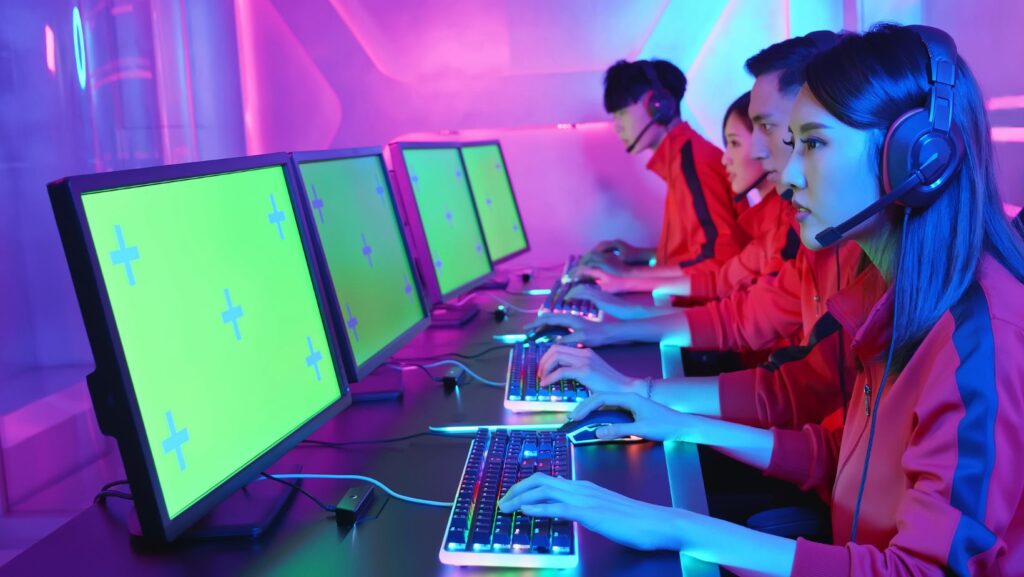In today’s digital age, virtual science competitions have revolutionized the way students showcase their knowledge and skills. These online events provide a platform for young scientists to compete, collaborate, and innovate from the comfort of their own homes. With the convenience of virtual participation, students can engage in these competitions without the constraints of geographical boundaries or travel expenses.
Virtual science competitions offer a unique opportunity for students to explore a wide range of scientific disciplines, from biology to physics, in a competitive yet supportive environment. Participants can test their problem-solving abilities, critical thinking skills, and creativity while vying for top honors in these virtual arenas. As the popularity of online learning and virtual events continues to rise, virtual science competitions stand out as a dynamic way for students to hone their scientific acumen and connect with like-minded peers worldwide.
Virtual Science Competitions
 Virtual science competitions have revolutionized the educational landscape, offering students a unique platform to showcase their expertise and creativity in various scientific fields. These online events have broken down barriers, enabling participants to engage, collaborate, and compete with peers worldwide without the constraints of physical locations or travel costs.
Virtual science competitions have revolutionized the educational landscape, offering students a unique platform to showcase their expertise and creativity in various scientific fields. These online events have broken down barriers, enabling participants to engage, collaborate, and compete with peers worldwide without the constraints of physical locations or travel costs.
Participants in virtual science competitions can delve into diverse scientific domains, honing their problem-solving abilities, critical thinking skills, and scientific knowledge. This digital format provides a dynamic environment where students can showcase their talents, learn from each other, and form global connections, fostering a culture of friendly competition and support among budding scientists.
The rise of virtual science competitions aligns with the growing trend of online learning and virtual interactions, providing students with an interactive and enriching educational experience beyond traditional classroom settings. By participating in these events, students can elevate their scientific competencies, stay abreast of the latest developments in their fields of interest, and prepare themselves for future academic and professional endeavors.
Benefits of Virtual Science Competitions
 Virtual science competitions offer numerous advantages to students, educators, and institutions alike. Let’s explore some key benefits below:Virtual science competitions open up a world of opportunities for students who may not have access to traditional in-person events.
Virtual science competitions offer numerous advantages to students, educators, and institutions alike. Let’s explore some key benefits below:Virtual science competitions open up a world of opportunities for students who may not have access to traditional in-person events.
By removing geographical constraints, these online competitions enable a broader pool of participants to showcase their skills and knowledge on a global scale. This increased accessibility fosters diversity and inclusivity, creating a level playing field for students from different backgrounds to engage and excel in scientific pursuits.Virtual science competitions, despite their numerous advantages, also present some challenges that participants may encounter.
These challenges can vary from technical issues to academic hurdles, affecting the overall experience of the competition. It’s essential for participants to be aware of these challenges and prepare adequately to overcome them effectively.
Virtual Experience
Below are some common challenges faced in virtual science competitions:
- Technical Glitches: Participants may encounter technical issues such as internet connectivity problems, platform malfunctions, or audio/video disruptions during their presentations or interactions. These glitches can hamper the smooth flow of the competition and impact the judges’ and audience’s experience.
- Time Management: Virtual competitions require participants to manage their time efficiently, especially when balancing their academic commitments with the competition tasks and deadlines. Poor time management can lead to rushed submissions, incomplete projects, or inability to participate fully in all aspects of the competition.
- Collaboration Barriers: In virtual settings, collaborating with team members or mentors can be more challenging compared to in-person interactions. Communication barriers, differing time zones, and technological constraints can hinder effective collaboration, affecting the overall performance of the team in the competition.
- Assessment Fairness: Ensuring fair assessment and evaluation in virtual science competitions can be a challenge due to the lack of physical presence and direct observation. Judges may find it difficult to assess certain aspects like non-verbal cues, real-time interactions, or hands-on demonstrations, which are more prominent in traditional in-person competitions.
Participants in virtual science competitions should be mindful of these challenges and proactively address them to enhance their experience and maximize their potential in the competitive environment. Overcoming these obstacles can lead to a more enriching and rewarding competition journey for all involved.



